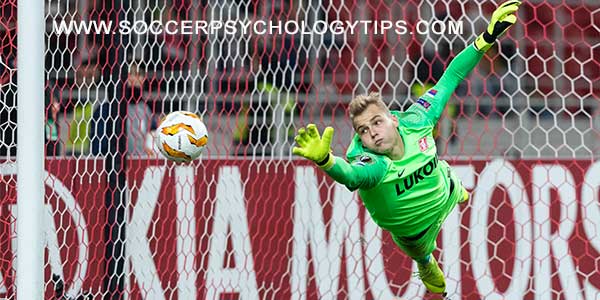
Do You Look for Someone to Blame After a Loss?
Is your tendency to be harsh on yourself for mistakes and see yourself as the reason for the loss? Nothing hurts a soccer team more than finger-pointing and self-blaming.
A coach from our Mental Game of Soccer Survey asked:
“How can I keep my team motivated after a loss and keep playing as a team?”
Everyone knows blaming others breaks apart a team but players blaming themselves also hurts the team’s overall performance.
Just because you failed to clear the ball, missed a penalty kick, or just didn’t play to your usual standard doesn’t mean you lost the game for your team.
A soccer match is 90 minutes, and the outcome is not decided by one play or by one player.
A team loss is just that, a TEAM loss.
Players must play as a cohesive unit for a team to succeed. A cohesive team feels connected and driven to achieve a common goal.
When one player is down, their teammates lift that player up.
Successful teams learn from losses and support each other throughout the ups and downs of the season.
The motto of a championship team is “we” over “me.” This “unified” team mentality builds confidence in one another and the team’s overall play.
Rutgers women’s soccer (9-1-0) suffered its first loss of the collegiate season against Penn State University (6-1-2). The 2-0 loss snapped Rutgers’s 20-match regular season winning streak.
Rutgers head coach Mike O’Neill has focused on two main points throughout the season: play together and learn together.
O’NEILL: “Credit to Penn State, they’re a good team, and these are the games you learn the most from. The most important thing is we stick together and learn everything we can from this game.”
Pointing the finger at a teammate or yourself divides a team, erodes trust, and leads to dysfunction.
Successful Teams Become Closer and Stronger After a Loss.
Successful teams identify what the team needs to improve, put the loss in the rearview mirror, and collectively work towards a common objective.
Even though it is essential for you to take responsibility for your play, you should not accept blame for a loss.
Being a good teammate means believing in and committing to your team’s values and objectives.
Teams become successful when each team member pulls in the same direction, trusts each other to put in the work, believes in one another, and is confident in the team’s ability to achieve its goals.
Remember, you win as a team, and you lose as a team.
Cohesive teams keep fighting towards a common goal through thick and thin.
No player is bigger than the whole. No one player is the sole reason for a win or the cause of a loss.
After a loss, championship teams assess their play, then refocus on the team goal. Fighting for a common objective keeps a team playing as a cohesive unit.
Related Sports Psychology Articles
- Can You Gain Confidence From Losses?
- Stay Confident After Big Losses In Soccer
- How To Cope with Losses Without Losing Confidence
- Subscribe to The Sports Psychology Podcast on iTunes
- Subscribe to The Sports Psychology Podcast on Spotify
Download a free sports psychology report to improve your mental game!
Learn more about our one-on-one mental game coaching.
Get the Mental Edge – With Mental Training

Do you perform well in practice, but find yourself under-performing in games? Do you doubt your skills and second-guess yourself under pressure? If so, mental training will help you reach your goals in soccer. Many soccer players have the skill but are held back by low confidence and lack of pregame mental preparation!
You can get expert mental coaching with us from anywhere. Meet with us via Zoom, Skype, FaceTime or phone call. With today’s video technology, we are able to connect with athletes and coaches all over the globe.
Call Us Today to Schedule Your Free 15-Minute Session.
Find Out How You Can Benefit From One-on-One Mental Coaching!
888-742-7225 | 407-909-1700
